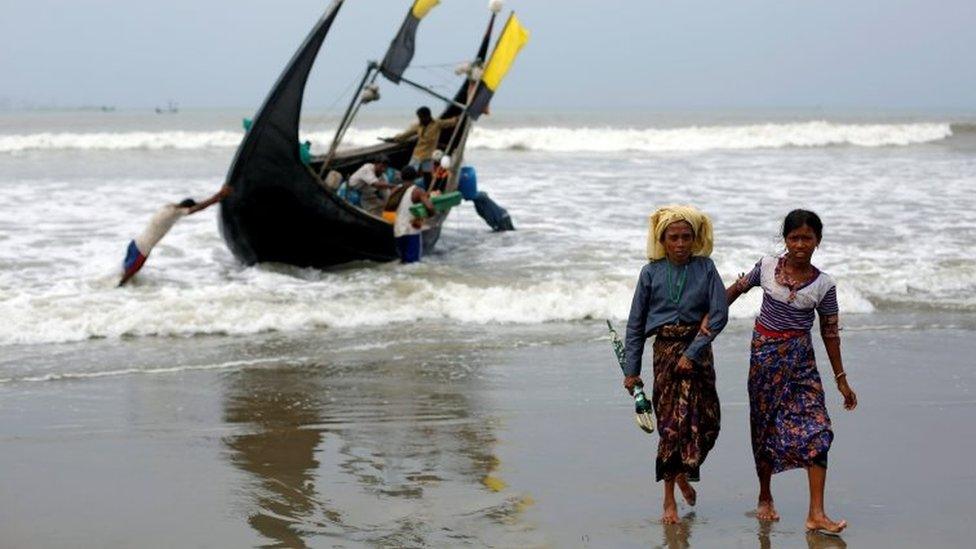Myanmar's Aung San Suu Kyi to miss UN General Assembly debate
- Published
Rohingya Muslims had to decide what to bring and what to leave.
Myanmar's de facto leader Aung San Suu Kyi is to miss a key UN debate next week as criticism grows of her handling of a crisis involving the Rohingya Muslim minority.
Some 379,000 Rohingyas have fled to Bangladesh since violence began last month. Whole villages have burned down.
The UN has accused the government of ethnic cleansing.
Myanmar's military says it is fighting Rohingya militants and denies reports that it is targeting civilians.
The Rohingya, a mostly Muslim minority in Buddhist-majority Rakhine, have long experienced persecution in Myanmar, which says they are illegal immigrants. They have lived in Myanmar, also known as Burma, for generations but are denied citizenship.
The UN Security Council is due to meet on Wednesday to discuss the crisis.
The organisation's refugee agency says not enough aid is getting through to the Rohingya who have fled to Bangladesh.
On visiting a camp, the UNHCR's George William Okoth-Obbo said there needed to be a massive increase in help.
Has Aung San Suu Kyi changed her mind?
Ms Suu Kyi had been expected to participate in discussions at the General Assembly session in New York, which runs from 19 to 25 September.
A government spokesman, Aung Shin, told Reuters news agency that "perhaps" Ms Suu Kyi has "more pressing matters to deal with", adding: "She's never afraid of facing criticism or confronting problems."
Another spokesman said Ms Suu Kyi would instead address the nation on TV on 19 September and "speak for national reconciliation and peace".
In her first address to the General Assembly as national leader in September last year, the former opposition icon defended her government's efforts to resolve the crisis over the treatment of the Rohingya.
The Nobel Peace Prize winner, who lived under house arrest for 15 years for her pro-democracy activism, is widely seen as the head of government in Myanmar.
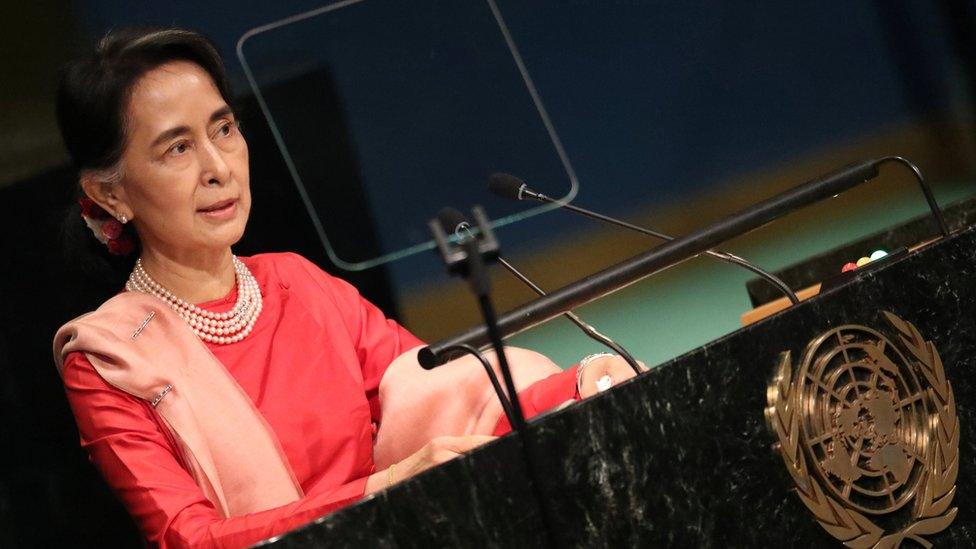
Aung San Suu Kyi addressed the UN General Assembly last year
Ms Suu Kyi has been criticised by former supporters in the West for failing to do enough to prevent the violence in Rakhine state.
Last week she said that the crisis was being distorted by a "huge iceberg of misinformation".
Fellow Nobel laureates, including the Dalai Lama, Archbishop Desmond Tutu and Malala Yousafzai, have called on Ms Suu Kyi to stop the violence.
What is happening in Rakhine state?
The latest wave of Rohingya fleeing their homes began on 25 August, following attacks by Rohingya militants on police and military posts.
Those who have fled say Myanmar troops responded to the attacks with a brutal campaign of violence and village burnings aimed at driving them out.
Severely injured Rohingya are overwhelming hospitals in Bangladesh
Myanmar's envoy to the UN has blamed the Rohingya insurgents for the violence in Rakhine state and said that his country would never tolerate such atrocities.
Later government spokesman Zaw Htay said 176 Rohingya villages, more than 30% of the total in northern Rakhine, were now empty.
Though access to Rakhine state is heavily controlled, the BBC's Jonathan Head was one of a few journalists taken on a government-run tour recently and witnessed Muslim villages being burned with police doing nothing to stop it.
While the current crisis has seen nearly 400,000 Rohingya flee, the UN says Bangladesh was already hosting several hundred thousand undocumented Rohingya who had fled earlier violence.
Other Rohingya have been living in camps for displaced people within Myanmar.

Analysis: Could Aung San Suu Kyi stop the violence?
Jonathan Head, South-East Asia Correspondent
Aung San Suu Kyi makes most of the important decisions in her party and cabinet. She also holds the position of foreign minister. The actual president, Htin Kyaw, in practice answers to her.
But the military still has a guiding role in what it calls a "discipline-flourishing democracy".
The military retains control of three vital ministries - home affairs, defence and border affairs. That means it also controls the police.
And on the issue of the Rohingya, Ms Suu Kyi must tread especially carefully. There is little public sympathy for them and inside Rakhine state the Rakhine Buddhists are even more hostile. Conflict between them and the Rohingya, who they refer to as Bengalis, goes back many decades.
Who is burning down Rohingya villages?
The Rakhine nationalist party, the ANP, dominates the local assembly. There is strong sympathy for them among the police, who are almost half Rakhine Buddhist, and the military. The military is the real power in northern Rakhine state, along the border with Bangladesh, where access is tightly controlled.
And the powerful armed forces commander Gen Min Aung Hlaing has made it clear he has little sympathy for the Rohingya. The military sees itself now as fighting an externally funded terrorist movement, a view shared by much of the Myanmar public.
So Aung San Suu Kyi has very little power over events in Rakhine state. And speaking out in support of the Rohingya would almost certainly prompt an angry reaction from Buddhist nationalists.
Read more from Jonathan: How much power does Aung San Suu Kyi really have?

Who are the Rohingya?
On Tuesday, Myanmar denounced the suggestion by the UN High Commissioner for Human Rights, Zeid Raad al-Hussein, that its treatment of Rohingya Muslims amounted to "ethnic cleansing".
There were at least a million members of the Rohingya ethnic group living in Myanmar, most of them Muslim, though some are Hindu. They are thought to have their origins in what is now Bangladesh and the Indian state of West Bengal, but many have been present in Myanmar for centuries.
The law in Myanmar does not recognise the Rohingya ethnic minority as one of its "national races" and they are effectively denied citizenship. Human Rights Watch describes the Rohingya, external as one of the largest stateless populations in the world.
"Restrictions on movement and lack of access to basic health care have led to dire humanitarian conditions for those displaced by earlier waves of violence," the group says.
Watch: Who are the Rohingya?
Bangladesh's Prime Minister Sheikh Hasina has called on Myanmar to take the Rohingya refugees back.
On Wednesday, the head of Myanmar's armed forces, Gen Min Aung Hlaing, said that the country "could not accept and recognise the term 'Rohingya' by hiding the truth" (meaning Myanmar's claim that they are illegal immigrants from Bangladesh).
"Rakhine ethnics [Buddhists] are our indigenous people who had long been living there since the time of their forefathers," he said.
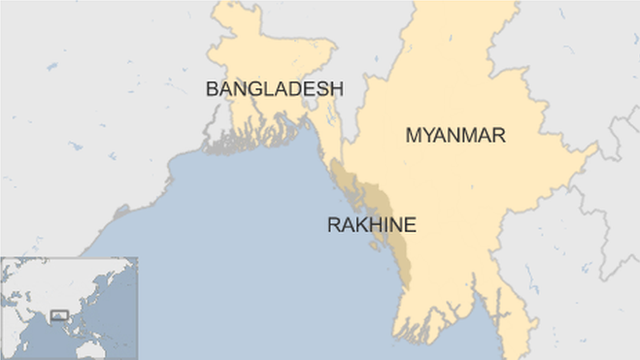
The violence has been concentrated in the Rakhine area
- Published12 September 2017
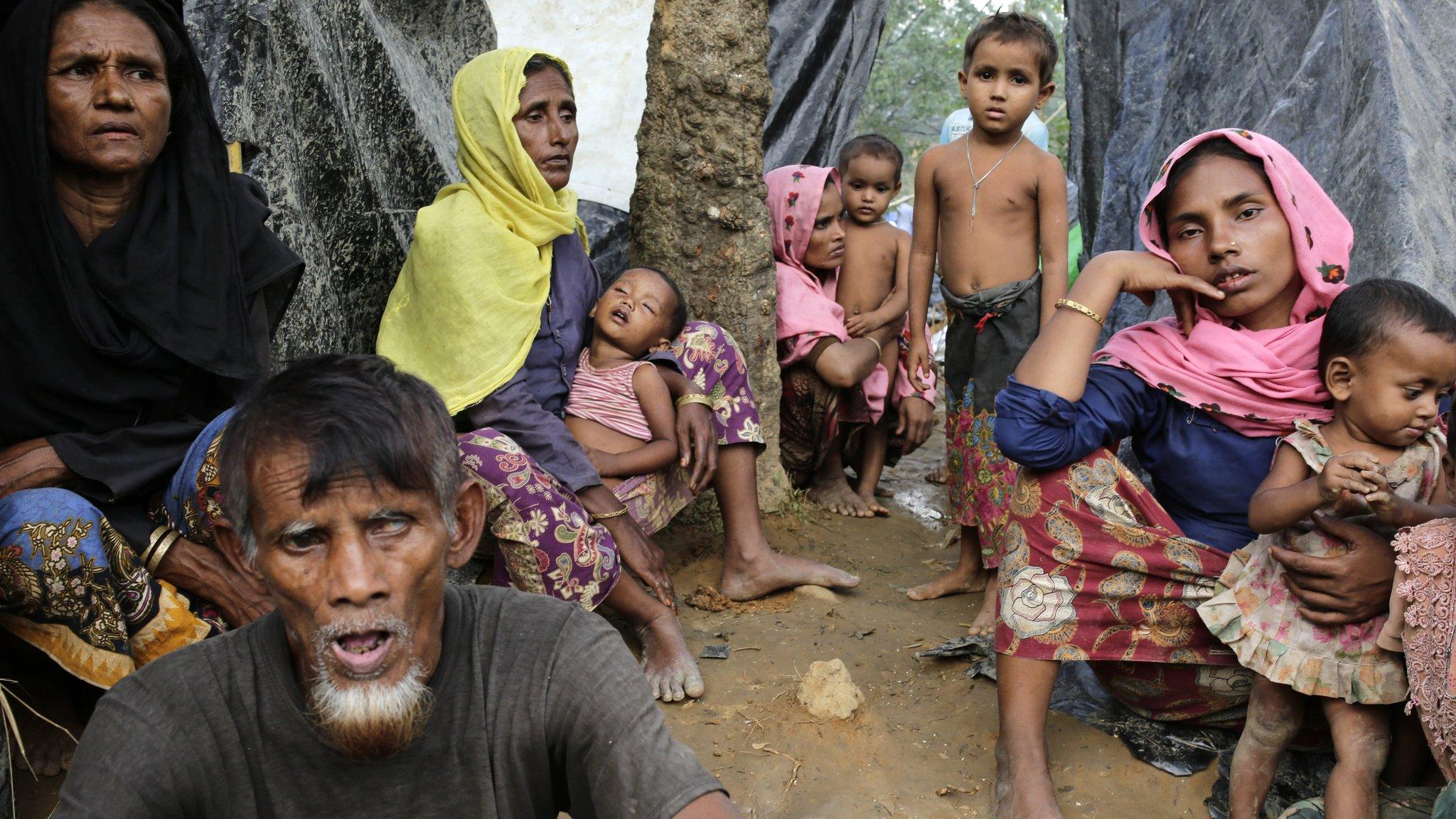
- Published11 September 2017
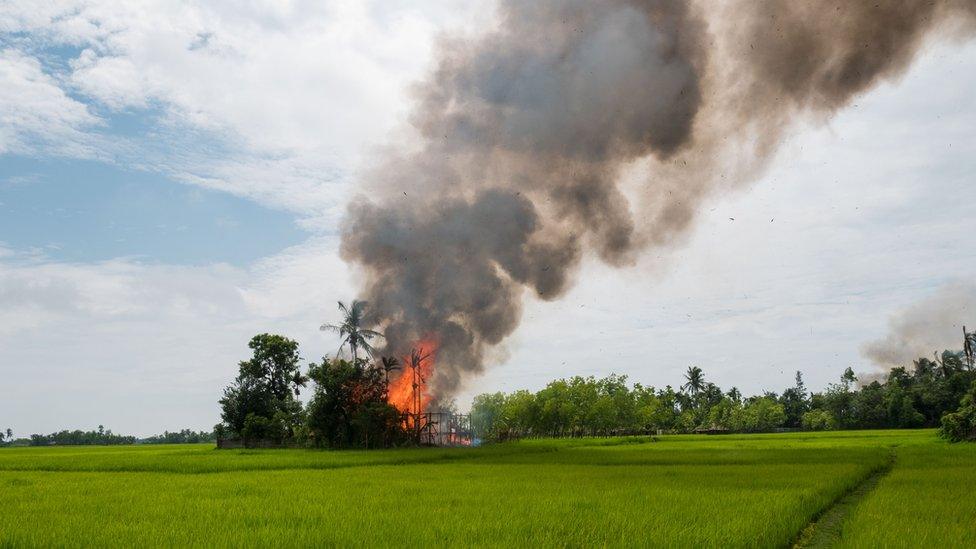
- Published19 September 2017
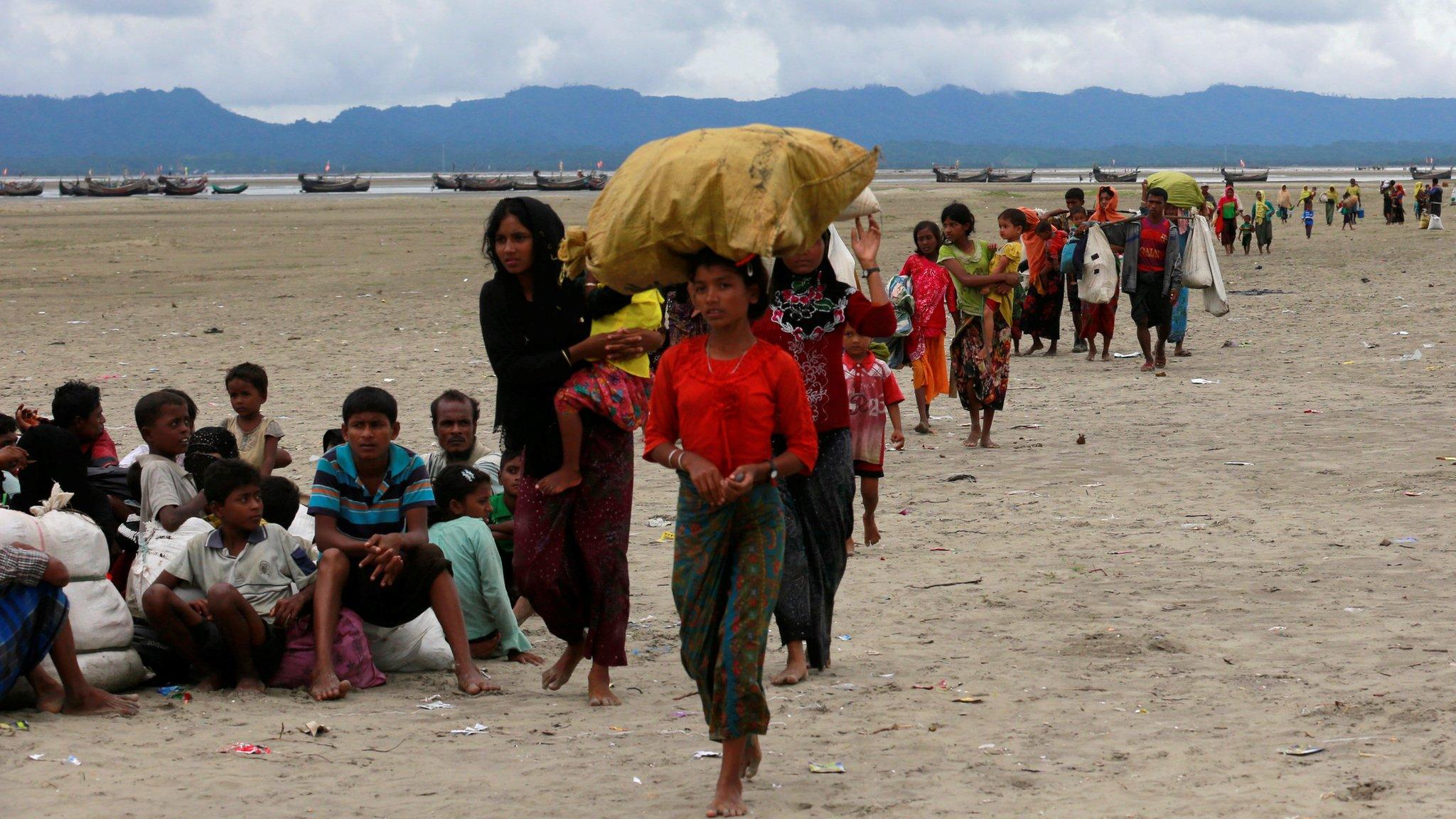
- Published7 September 2017
